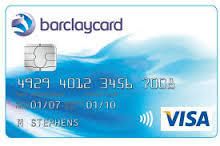- myFICO® Forums
- Bouncing Back from Credit Problems
- Rebuilding Your Credit
- Re: Opt out question
- Subscribe to RSS Feed
- Mark Topic as New
- Mark Topic as Read
- Float this Topic for Current User
- Bookmark
- Subscribe
- Mute
- Printer Friendly Page
Opt out question
Is your credit card giving you the perks you want?
Browse credit cards from a variety of issuers to see if there's a better card for you.
- Mark as New
- Bookmark
- Subscribe
- Mute
- Subscribe to RSS Feed
- Permalink
- Report Inappropriate Content
Opt out question
I just opted out because I'm applying for a mortgage in a couple of months..
But will companies still be able to approve me for products with soft pulls?





Starting score May 2015 500's across the boards
Now - 610 EQ 598 TU 597 EX
- Mark as New
- Bookmark
- Subscribe
- Mute
- Subscribe to RSS Feed
- Permalink
- Report Inappropriate Content
Re: Opt out question
I believe if you are opted out there will be no soft pull approvals. However, if you are applying for a house, I'm not sure if you want any new accounts until after that process is complete anyway. I will definitely defer to those who know more than I do though.
- Mark as New
- Bookmark
- Subscribe
- Mute
- Subscribe to RSS Feed
- Permalink
- Report Inappropriate Content
Re: Opt out question
Opting out simply cuts down on the number of unsolicited credit offers your will receive in the mail. It has nothing to do with someone proactively applying for credit. It is a good move to opt out before applying for a mortgage.
- Mark as New
- Bookmark
- Subscribe
- Mute
- Subscribe to RSS Feed
- Permalink
- Report Inappropriate Content
Re: Opt out question
And for credit limit increases I wonder if they'll have trouble doing soft pulls for that too.
I don't care for the unsolicited credit offers I get any ways but I care about the soft pulls I request from companies





Starting score May 2015 500's across the boards
Now - 610 EQ 598 TU 597 EX
- Mark as New
- Bookmark
- Subscribe
- Mute
- Subscribe to RSS Feed
- Permalink
- Report Inappropriate Content
Re: Opt out question
Opting out does NOT prevent all soft pulls. It only prevents soft pulls done 'for promotional purposes' in granting credit. That includes the 'prequal' websites. But it does NOT include soft pulls from your current creditors, and debt collectors.
Opting out prior to a mortgage would have no benefit that I can see.
- Mark as New
- Bookmark
- Subscribe
- Mute
- Subscribe to RSS Feed
- Permalink
- Report Inappropriate Content
Re: Opt out question
I contend that doing the 'opt out' before starting the mortgage process will suppress the ability of CAs that look for opportunities to collect on a debt that could be old and not visible on a standard CR.
It has been a few years since I applied for a mortgage but I do remember that 2 CAs came out from the shadows and pounced on me, while I was vulnerable.
I was very focused on getting that mortgage app through the process (at almost any affordable cost) and the amounts were not substantial, both about a 100, so I paid them quickly and without question. I did not recognize either one, but I paid them quickly just to get rid of them.
I am convinced that unscrupulous CAs use that opportunity to get paid. I also believe that in some cases, ppl might truly have outstanding debts that are not satisfied, but would otherwise be invisible. This could be caused by having a large amount of debts during a person's past crisis and it got overlooked in the crowd, or whatever.
I intend to always opt out before the mortgage process.
- Mark as New
- Bookmark
- Subscribe
- Mute
- Subscribe to RSS Feed
- Permalink
- Report Inappropriate Content
Re: Opt out question
The FCRA provides for the ability of creditors to submit specific criteria to the CRAs, and then obtain a listing of consumers who meet those criteria.
The credtor can thus use the CRAs to pre-screen, eliminating the mailing of offers to consumers who will clearly not meet their minimum criteria. See FCRA 604(c).
The creditor does not receive a full consumer credit report, as the FCRA permits the CRA to provide only a lisiting, not any account specific information.
The "price" the creditor pays for obtaining that pre-screened listing is that they must then make a "firm offer for credit|" to all consumers named in that listing.
The FCRA defiens a firm offer for credit as one that must be honored should the consumer then apply and is found to still meet the stated criteria.
Opting out simply provides the consumer the ability to have their names excluded from any such listings provided by the CRAs. Nothing more.
It has zero effect on credit initiated by the consumer, and upon ability of parties who otherwise have permissible purpose to request and obtain a consumer's credit report, be it via a hard or soft pull. It is an old wives tale that opting out will prevent debt collectors, for example, of contnuing to obtain a full consumer credit report, as debt collectors have explicit permissible purpose to do so under FCRA 604.
Debt collectors cannot obtain any such listings, as they are limited only to those who are making firm offers for credit or insurance.
They can request a permissible and full CR at any time, but unless they have some other source of information indicating that the consumer has applied for new credit, would need to make regular inquires in order to pick up a mortgage app inquiry by another. Inquiries cost them $.
Consumers who are rebuilding may wish NOT to opt out, as it is a way to determine, without any credit inquries, that their credit file is now meeting minimum qualification criteria, and if they get a so-called promotional inquiry that indicates in the offer that it is being made based on a listing provided by a CRA, that it is more than a junk offer....it is a firm offer for credit.
- Mark as New
- Bookmark
- Subscribe
- Mute
- Subscribe to RSS Feed
- Permalink
- Report Inappropriate Content
Re: Opt out question
@Anonymous wrote:I contend that doing the 'opt out' before starting the mortgage process will suppress the ability of CAs that look for opportunities to collect on a debt that could be old and not visible on a standard CR.
It has been a few years since I applied for a mortgage but I do remember that 2 CAs came out from the shadows and pounced on me, while I was vulnerable.
I was very focused on getting that mortgage app through the process (at almost any affordable cost) and the amounts were not substantial, both about a 100, so I paid them quickly and without question. I did not recognize either one, but I paid them quickly just to get rid of them.
I am convinced that unscrupulous CAs use that opportunity to get paid. I also believe that in some cases, ppl might truly have outstanding debts that are not satisfied, but would otherwise be invisible. This could be caused by having a large amount of debts during a person's past crisis and it got overlooked in the crowd, or whatever.
I intend to always opt out before the mortgage process.
Yes, a mortgage pull will often get old debtors heads to pop up. No doubt about that. But the mechanisms behind that are not prevented by opting out.
Opting out does not prevent permissible SPs by debt collectors, nor does it prevent the CRA's from disseminating lists of debtors "improving their collection score", to CA's. The opting out advice I believe to be one of many credit myths.
- Mark as New
- Bookmark
- Subscribe
- Mute
- Subscribe to RSS Feed
- Permalink
- Report Inappropriate Content
Re: Opt out question
So, being opdted in CAN in fact help ghost CA's (which isn't my concern at all) appear out of the woodworks and ruin your process, but the fact that being opted out is the best option is a myth?





Starting score May 2015 500's across the boards
Now - 610 EQ 598 TU 597 EX
- Mark as New
- Bookmark
- Subscribe
- Mute
- Subscribe to RSS Feed
- Permalink
- Report Inappropriate Content
Re: Opt out question
I think I am fixated on unscrupulous CAs going after ppl with 'manufactured debts' and just trying to get money when we are vulnerable. I am thinking that CAs subscribe to the lists and take their chances going after ppl they think will pay, and that the CA had no previous associations with the person.
I agree my accusations are unproven and I suspect the worst. The opt out will eliminate that suspicion for me so I'm going to use it in that situation.
Kind of the same thinking as I bought something from a store that ended up being a horrible product and for whatever reason, I cant return it or exchange it. In a defensive posture, I am never going back to that store again, even if they sell the same sealed package of gum I buy across the street.